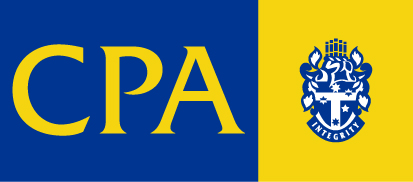2020 has proven to be a whirlwind for Australian businesses, with many struggling to cope with the financial implications and fallout of COVID-19, shining a spotlight on the obligations of company directors.
Those with large workforces — and particularly businesses involved in aged care and disability — have had to manage the increased costs associated with managing the spread of the coronavirus infection, while continuing to provide services to their clients.
This has translated into significant increases in direct service costs without a proportionate increase in revenue, resulting in reduced surplus or, in some instances, increased deficits.
Some organisations face the prospect of not being able to pay their debts when they fall due in the foreseeable future and thereby risk trading insolvent.
Others may be in a stronger position but are still impacted by the financial fallout of COVID-19, resulting in a deferral of planned growth initiatives or delays in capital expenditure commitments.
So, what is the role of management in reporting these implications?
Boards need to be provided with accurate, relevant and timely information that enables them to make necessary decisions for the future. For some organisations, traditional profit and loss reporting will not be sufficient and cash flow reporting will need to be adopted.
Many organisations have delayed the annual budgeting process until certainty is provided on their sector’s future. Now is the right time to forecast where the organisation’s cash position will be in three, six and 12 months’ time. Even with this level of uncertainty, a cash flow forecast in current conditions will provide a base point of the financial life and viability of the organisation.
There will be a number of key areas for directors to consider in the June 2021 reporting period, including:
- Cash flow and going concern – can your organisation pay its debts when they fall due? Responsible persons signed a statement to this effect in the 30 June 2020 financial report which covered a minimum period of 12 months from date of signing the 30 June 2020 financial report. Since March 2020, JobKeeper has been the lifeline for many organisations who would otherwise be severely impacted.
- Impairment of assets – as a result of reduced financial performance, and deteriorating operational cash flows, is the carrying value of land and buildings impaired? Are clients and customers facing the same financial difficulty? This could cast doubt over their debts to the organisation and whether they are collectable. If so, directors may need to consider impairment in the 2021 financial report.
- Fraudulent financial reporting – are there any pressures or motives for management to manipulate revenue and expenses to achieve a desired result for the year? There is certainly the incentive for organisations that are struggling to be able to qualify for JobKeeper and other government stimulus measures. Is there a potential risk of manipulation of an organisation’s financial results in order to continue receiving this stimulus?
In addition to the above areas, there are also reporting obligations specific to the not-for-profit sector which directors within these organisations need to adhere to. Responsible persons (defined generally as boards or committees) for charities registered with the Australian Charities and Not-for-profits Commission (ACNC) need to ensure their organisation complies with ACNC legislation as well as fulfils their own duties under the ACNC governance standards.
They are responsible for the fair presentation of their financial reports in accordance with Australian Accounting Standards and for such internal control determined necessary to enable the preparation of a financial report that is free from material misstatement, whether due to fraud or error.
Boards should be monitoring these points more regularly going forward considering the uncertain future facing organisations today.





